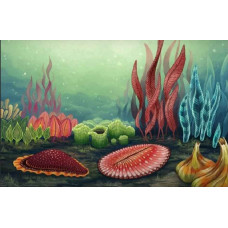From the ancient Greek βιοτή - life.
A historically established complex of living organisms (plants, animals, fungi and bacteria) living in a particular area.
The totality of species of living organisms united by a common habitat (distribution) at present or in past geological eras.
Biota includes both cellular organisms (plants, animals, fungi, bacteria, protists, etc.) and non-cellular organisms (such as viruses).
Biota are an important part of ecosystems and the biosphere. Biota are actively involved in biogeochemical processes. The study of biota is the subject of many sciences, including biology, ecology, hydrobiology, palaeontology, biogeochemistry and others.
In contrast to a biocenosis, a biota can be characterised by the absence of direct ecological links between different species of organisms.
In general, the term 'biota' is used in relation to large territorial categories or major habitats: terrestrial biota, marine biota, terrestrial biota.
Biota
Tags: Biota

